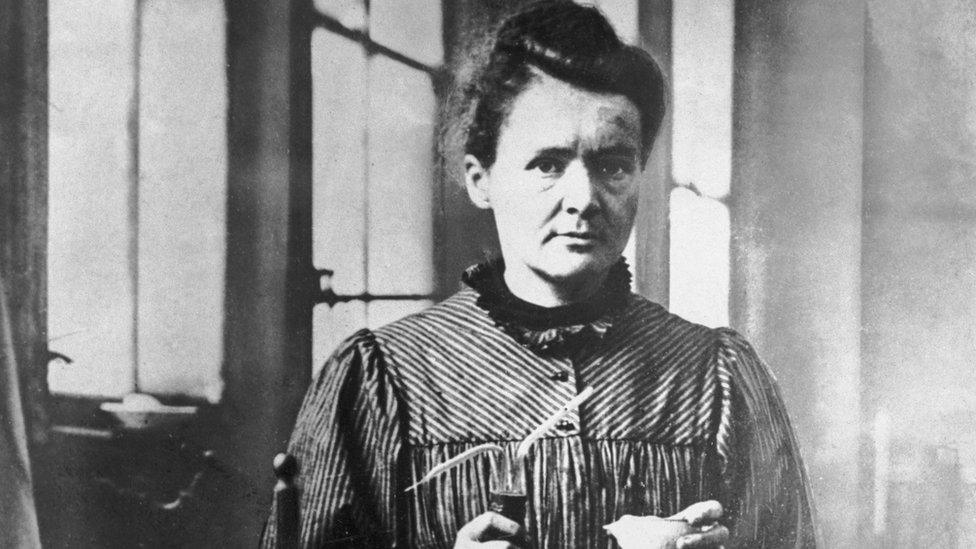Breaking the mould in a male-dominated workplace
- Published
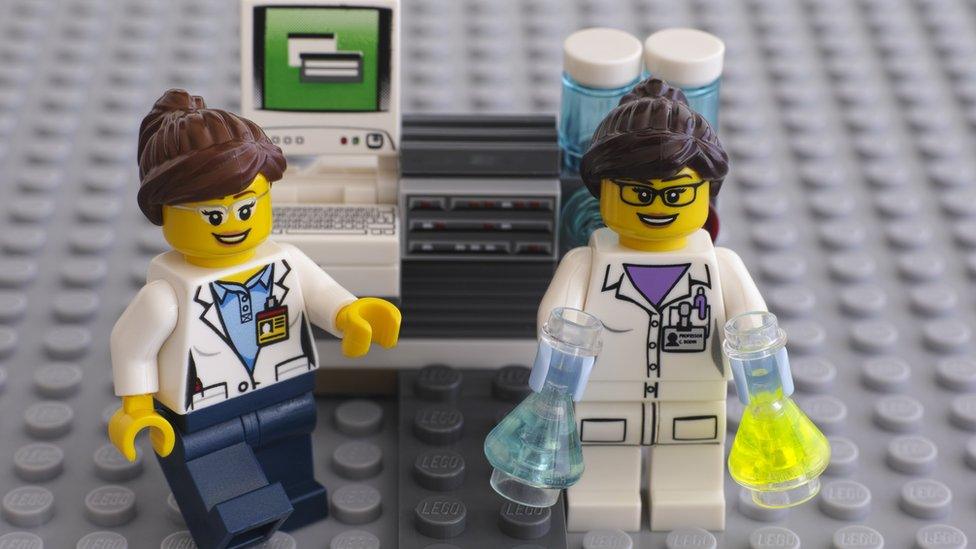
The first female lego scientists were launched only four years ago
Women make up less than a quarter of the UK workforce in industries involving science, technology, engineering and medicine. BBC News spoke to three people with bright ideas for breaking stereotypes.
The industry leader
As a young girl Avideh Nazeri wanted to be an air hostess to fulfil her dream of seeing the world. However, an inspirational teacher encouraged her to use her love of science to study for a career in medicine.
She says she remembers the words of her mother, who used to say: "As an Iranian girl, you have to work four times more; two times because you're a girl and two times more because you're a foreigner in a new country."
Dr Nazeri is now a director at the global pharmaceutical company NovoNordisk. Born in Iran, she trained to be a hospital doctor at King's College London. She later moved to the pharmaceutical industry, where she runs a department that develops new medicines.
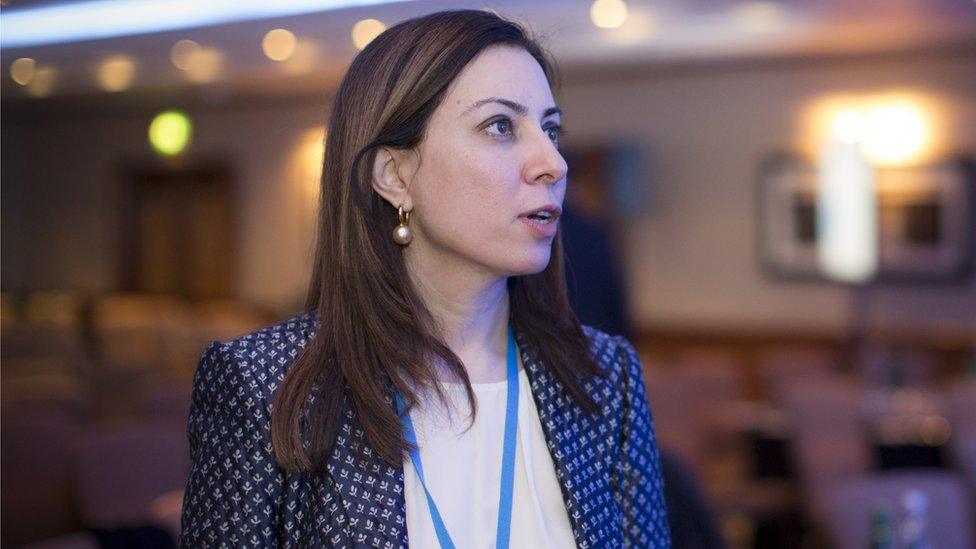
Avideh Nazeri: "You have to work four times harder"
Given the lack of women in science, particularly at higher levels, she says we need to champion and showcase the success of women.
This process starts, she says, with women themselves doing more to expand the talent pool by spreading the message that science is interesting, creative and a good career.
The second part, involving progression, is more complex, she says.
"We can see still in different societies girls do come to science, they even excel at it, but they just don't want to go to the higher level."
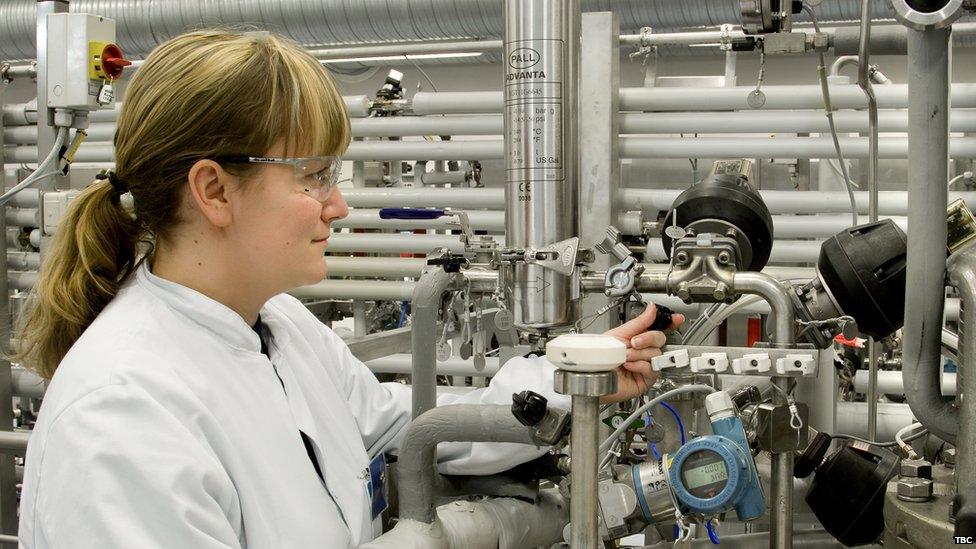
NovoNordisk has a network of professional women in science across the business to share both dilemmas and success stories.
She was blessed with many good managers who raised her aspirations. And young people considering a career in science need to hear the success stories, she says.
"We are now living in the most exciting time for science and in my field - drug discovery - it's the most exciting time that anybody could have been part of history."
The professor of engineering
One university that is making inroads into encouraging more women to study engineering is the University of Southern California (USC) in the US.
Yannis Yortsos, Dean of the Viterbi School of Engineering, has set out to "change the conversation" about what engineers do, who they are, and what they look like.
This year 44% of engineering students entering the school were women.
"How do you shatter stereotypes about what scientists and engineers do?" he asks. "Fundamental change that has to happen."
A key part of the solution, he says, is changing perceptions of engineering as "a very dry profession, a nerdy profession" to a career that has important societal benefits.
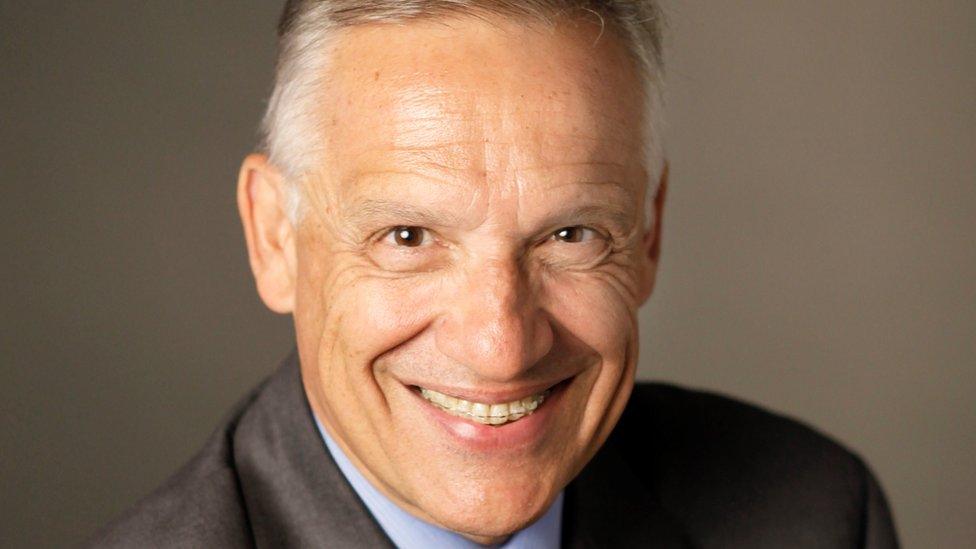
Yannis Yortsos: Engineering is a chance to make the world a better place
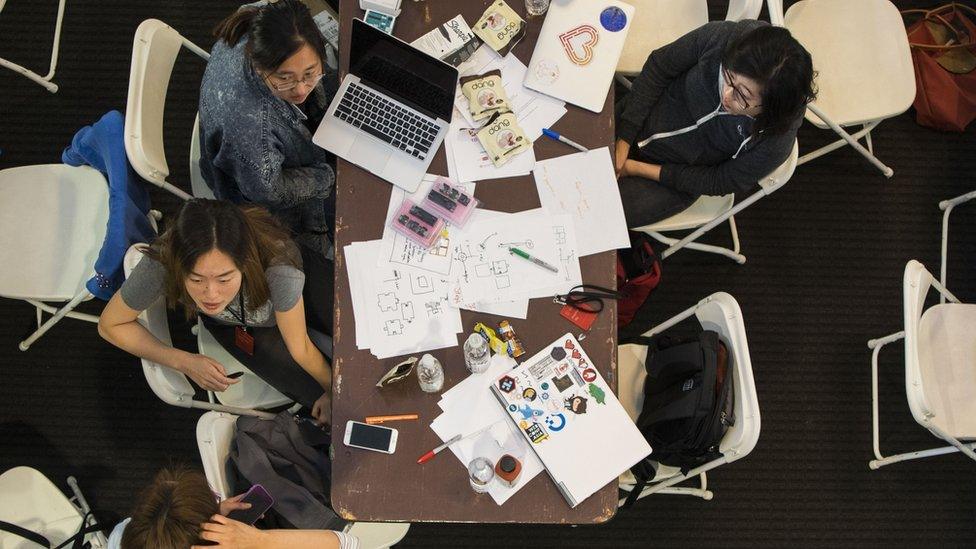
Engineering students at the University of Southern California
He cites the 14 Grand Challenges for Engineering, external in the US as an example of how engineering can be a force for societal good, with challenges ranging from reverse-engineering the brain to securing cyberspace.
He believes engaging more women in engineering is essential in a changing world where technologies like AI and quantum computing will become ever more important.
"It's an economic imperative," he says. "To be competitive as a nation you need to engage all of your resources in that competition."
His drive comes from his upbringing on the Greek island of Rhodes. He studied in Athens, then went to the US to study for a PhD in chemical engineering at the California Institute of Technology, before joining USC.
The engineering apprentice
Helen Brindley is starting out on an engineering career as a second-year apprentice at Siemens, which has set a target for 20% female apprentices by 2020. (Currently, only 8% of engineering apprentices in the UK are female.)
The 19-year-old developed an interest in engineering at the age of seven when her older brother went to study aeronautic engineering at university.
"I remember being fascinated by the drawings he used to bring home for the summer and for holidays," she says.
"He used to take me plane spotting at the airport because he was really into aeroplanes. And that ignited an interest and curiosity into how things work and why things work the way they do."
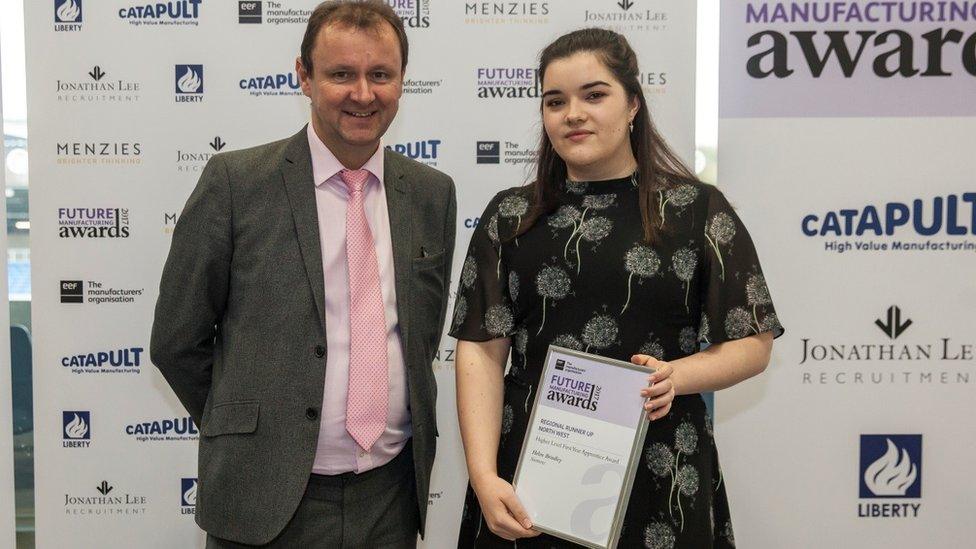
Helen Brindley says she found a different path to her dream career
She says her high school in Liverpool was supportive and put her in touch with industry. She was able to do placements at a local engineering firm and then Jaguar Land Rover.
"I actually spent a day alongside an apprentice fixing one of their mechanical robots," she recalls.
At first she thought university was the only option for an engineering career, but her brother, who went into industry from university, convinced her parents that an apprenticeship was a good idea.
"He was telling them about the value that apprentices hold in the company he worked for, the usefulness of them and the fact that they've had all the hands-on experience," she says.
During her college placement as a first-year apprentice, she was one of only four women in a class of 20.
"It's definitely growing in numbers but it's not as much as it should be," she says. "Apprenticeships should definitely be promoted more in school, even if they're not in engineering because there are so many opportunities."
She says she enjoys what she does and wouldn't want to do anything different.
"In respect to engineering I just love getting my hands dirty and just getting involved, but it's not all about that, a lot of engineering jobs are sat behind a desk 90% of the time," she says. "It's all about solving the manufacturing problems that are going to occur in the next 10 or 15 years and creating more lasting solutions."
2018 is the Year of Engineering, external, a government campaign to address the engineering skills gap and widen the pool of young people who join the profession.
Follow Helen on Twitter, external.
- Published13 January 2018

- Published6 November 2017
